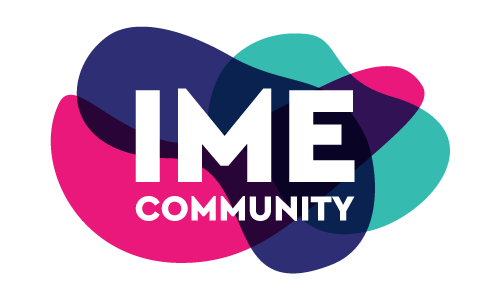Are you a GenX parent like me? I proudly wear my Purple Rain t-shirt I got at Target with my Mom jeans, Hoka sneakers and Apple Watch that I ignore when it pings me to stand up several times a day. That’s the “Rebel Yell” in me.
If you’re a GenX parent, you grew up with 80’s music, which I say is the best ever and my daughter says is the sole reason she’s grateful she wasn’t a teen in the 80’s. We’re hypercompetitive, overachieving, diet-culture believing parents who grew up without the internet because Al Gore hadn’t invented it yet, and without the yin and yang of technology and social media.
We grew up with all focus on the external. No one asked us, “How are you feeling today?” No one cared. Even if someone had asked, we wouldn’t have had a clue how to respond.
Cable was MTV (totally) and not 24 hour a day news like today’s teens are exposed to. Of course, us GenX parents experienced global disasters and tragedy, but without social media there was a natural buffer, so we weren’t inundated constantly with tragic news.
At times, we felt helpless (for sure), but were not constantly reminded of our
helplessness and a sense of impending doom as we mindlessly scrolled through our phones. Cordless phones were super high tech and for the 1% at the time.
There’s no doubt, the 80’s were fun, but were served up with a fakeness and
superficiality like a side order of tasty pre super-size McDonald’s fries.
This just in from AAP (American Academy of Pediatrics) News:
Pre-pandemic About 21% of teens experienced a major depressive episode and
9% of children and adolescents experienced anxiety even before the stress of the COVID-19 pandemic wreaked havoc on their lives.
Morbidity and Mortality – A Look at Mental Health of Children and Teens 2013 – 2019
A new study from the Centers for Disease Control and Prevention (CDC)
published in the Morbidity and Mortality Weekly Report takes an in-depth look at the mental health of children and adolescents from 2013-’19. They pulled data from nine federal surveillance systems and found that among youths ages 3-17 years:
- 10% of children and adolescents had received mental health treatment in the year before the survey
- 10% of children and adolescents had received mental health treatment in
the year before the survey - 10% had attention-deficit/hyperactivity disorder
- 9% had experienced anxiety problems
- 9% had experienced behavioral/conduct problems
- 8% had taken medication for mental health problems in the previous year
- 4% had experienced depression and 2% met the autism spectrum disorder surveillance case definition.
Some of the data sets looked specifically at adolescents/teens, including age
ranges of 12-17 or 14-18 years. These data showed:
- 37% persistently felt sad or hopeless for at least two weeks
- 26% received mental health services
- 21% had experienced a major depressive episode
- 19% had seriously considered attempting suicide in the previous year
- 9% had attempted suicide in the previous year
- 7/100,000 adolescents ages 10-19 years died by suicide in 2018 and 2019
- 4% had a substance use disorder in the previous year.
Previous studies indicate 40% of children will have met the criteria for a mental health condition by the time they reach adulthood. The stress of the pandemic has exacerbated these issues.
Late last year, the AAP, American Academy of Child and Adolescent Psychiatry and Children’s Hospital Association declared a national emergency in children’s mental health, and the U.S. surgeon general issued an advisory calling for action to protect the mental health of youths.
Russia Invades Ukraine
My husband barges in the house, “I HATE AUTOCRATS! WHY DO PEOPLE HAVE SUCH AN AFFINITY FOR AUTOCRATS?”
“Did you talk about Russia and Ukraine today at school?” I asked my senior and freshman.
“Yes”, they responded and then we left it at that. We have strong opinions and conversations in our house, but never once did my husband or I ask our teens,
“How are you feeling today? Russia invading Ukraine is big news and I’ve been thinking about you and wanting to check in to see how you are feeling.”
If I asked this, my teens might literally put down their phones, look at each other, and finally agree on something. “Who is this woman in our kitchen who looks just like our Mom?”
With all of today’s tragedies it can be overwhelming, bringing up the legitimate question, “Is it even possible for GenX parents to actually help our teens process global tragedies?”
Us GenX parents may be short on introspection, but love our children beyond
measure. I guess those cheesy 80’s love songs must have struck a chord with
our parenting.
10 Ways to Support Your Teen During a Global Tragedy
Here are 10 ways to support your teen during a global tragedy:
- Discuss issues by asking, “How are you feeling?” to let your teen know you care about them and how they are processing the news.
- Don’t try to fix or solve or invalidate your teen’s feelings by saying things like, “It’s okay.”. Instead, listen, listen, listen. Get comfortable with leaving the conversation with, “It’s terrible. It’s so tragic. It’s horrible.”
- Global issues are constantly evolving and changing. It’s not a one and done conversation. There’s no finish line. Be open to having ongoing conversations with your teen on the same issue
- Support your teen to practice Intentional Self-care (See IME Community Top 10 Self-Care Tips for Teens)
- Recognize you don’t cause or control suffering for you, for your teen or for the world. You are a part of a common humanity of joys and suffering and so is your teen.
- Decide how you want to show up for your teen and where you want to put your attentional focus.
- All of life is a duality. It’s a mix of good and bad. Let your teen know it’s okay to have a mix of emotions. It’s okay to have fun with friends and also care deeply about global issues.
- Don’t shame your teen if your teen copes with emotions by buffering with food, sleep or social media.
- Stay in your lane. How are you working it out for yourself? Check in internally with yourself and ask, “How am I feeling?”
- Decide which experts you are going to learn from and what news outlets you want to follow. None is okay too. Monitor your inputs and outputs on social media. Consider a social media cleanse.
Us Gen-X parents have not evolved when it comes to becoming introspective, but the world has changed and the stakes are high for our teens. Let’s stop waiting for Michael J. Fox to pick us up in the DeLorean and take us “Back to the Future”. It’s time for us to parent up!
Self-love superpower,
Dr. Karla, ActivistMD

